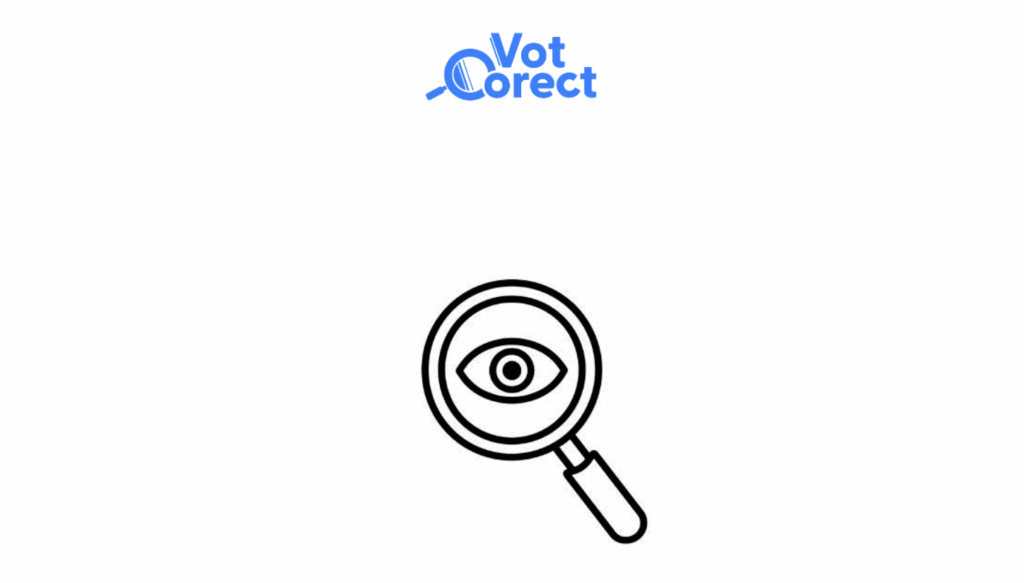
The second round of the presidential election was contested by two candidates with very diverse political positions in a highly polarized atmosphere. The organization of the technical aspects of the process was effective, but the release of deliberate misinformation and alarmist rumors of possible election fraud by the AUR party created tension, put pressure on the election administration and undermined public confidence in the process. The aggressive rhetoric of the AUR candidate towards the media and part of the electorate dominated the last days of the campaign.
The election administration followed the electoral calendar and efficiently organized the technical aspects of the elections. The fact that Central Electoral Bureau (CEB) meetings were not public reduced the transparency of the process. The very high number of online campaign complaints received by the CEB created a considerable workload, and in some cases, the filing of complaints indicated a coordinated effort to load the CEB’s agenda.
In the electoral campaign, the right to association was respected and candidates were able to organize their campaign activities generally without restrictions. The right to freedom of expression, although generally respected, was affected in several cases by decisions of electoral bureaus to remove unlabeled political advertising, even when it expressed the political views of journalists or ordinary citizens. Candidates presented the choices the citizens have to make differently: George Simion urged them to choose between the system and the anti-system, and Nicușor Dan between the pro-EU, pro-Western orientation and alignment with the Russian Federation’s policy. Both candidates took part in a televised debate; George Simion’s non-participation in the ensuing debates limited voters’ access to information about his political program. Alarmist rumors and speculation increased in the run-off campaign; the authorities published denials of several intentional misinformation by the AUR to maintain calm and restore confidence in the electoral process. Regrettably, the campaign was marked by verbal violence and discriminatory attacks.
In the second round of elections, several online monitoring initiatives warned of coordinated inauthentic content. As for the online campaign, Expert Forum monitored more than 1,000 public Facebook groups, identifying 194 pages with potentially coordinated behavior. EFOR also identified a network of inauthentic accounts promoted with the hashtag #ankaversace on Tik Tok, which was only partially removed by the platform. A disinformation campaign via Telegram aimed at swaying the vote in favor of a candidate was labeled by the MFA as Russian interference. Monitoring by a civic group, detailed in the Cheile Împărăției report, confirmed the existence of well-organized networks operating with significant influence capacity, on a hub-and-spoke model, with several dozen key accounts and thousands of satellite accounts.
The first round of the presidential elections recorded the highest costs for a presidential election: income of 172 million lei and expenses of 165 lei, and the overall limits for income and expenditure remain very high. Positively, the PEA published datasets with income and expenditure for the second round on 16 and 17 May on the finantarepartide.ro portal. Nicușor Dan has declared income of 40.4 million lei and expenditure of 31.5 million lei as of 16 May, much of the income originating from loans. George Simion has so far not declared any income or expenditure for the second round. Although the candidate would still have had time to declare these funds, the failure to do so significantly reduced the transparency of the electoral process and goes against the spirit of the law. The fact that the identity of several Facebook accounts that are not attributable to a candidate, which promoted negative campaigning prior to the first round, has not been identified so far, despite complaints lodged to the PEA, is a limitation of the transparency and integrity of the process.
The number of observers accredited by Vot Corect in the country and abroad increased after the first round to 1276. They submitted information from around 1,850 polling stations during the three days of observation through the Vote Monitor app. After the first round, voters submitted over 3,500 complaints about the electoral process via the votcorect.ro portal, most of them related to voters who posted their stamped ballot papers online in violation of the law.
The CEB has adopted numerous decisions regarding complaints about online political advertising. Meta has challenged some of the CEB decisions at the Bucharest Court of Appeal, but these have been rejected and some are currently under appeal. Rădăuțiul Civic and Expert Forum have submitted a request to the Bucharest Court of Appeal to demand that the CEB allow the observation of voting with a special ballot box.
Election day was generally orderly, despite some attempts to disrupt the process and manipulate voters. The opening and voting procedures were positively assessed in more than 98% of observed polling stations. During voting, observers reported cases of voter influence, including pressure and vote buying. Vote counting was positively assessed in 95.7% of polling stations. Observers reported no attempts to compromise the fairness of the results, with one exception, but noted a number of procedural omissions.
Subscribe to our
newsletter
Sign up for our monthly newsletter
and receive the latest EPDE news
Subscribe to our
newsletter
Sign up for our monthly newsletter and receive the latest EPDE news